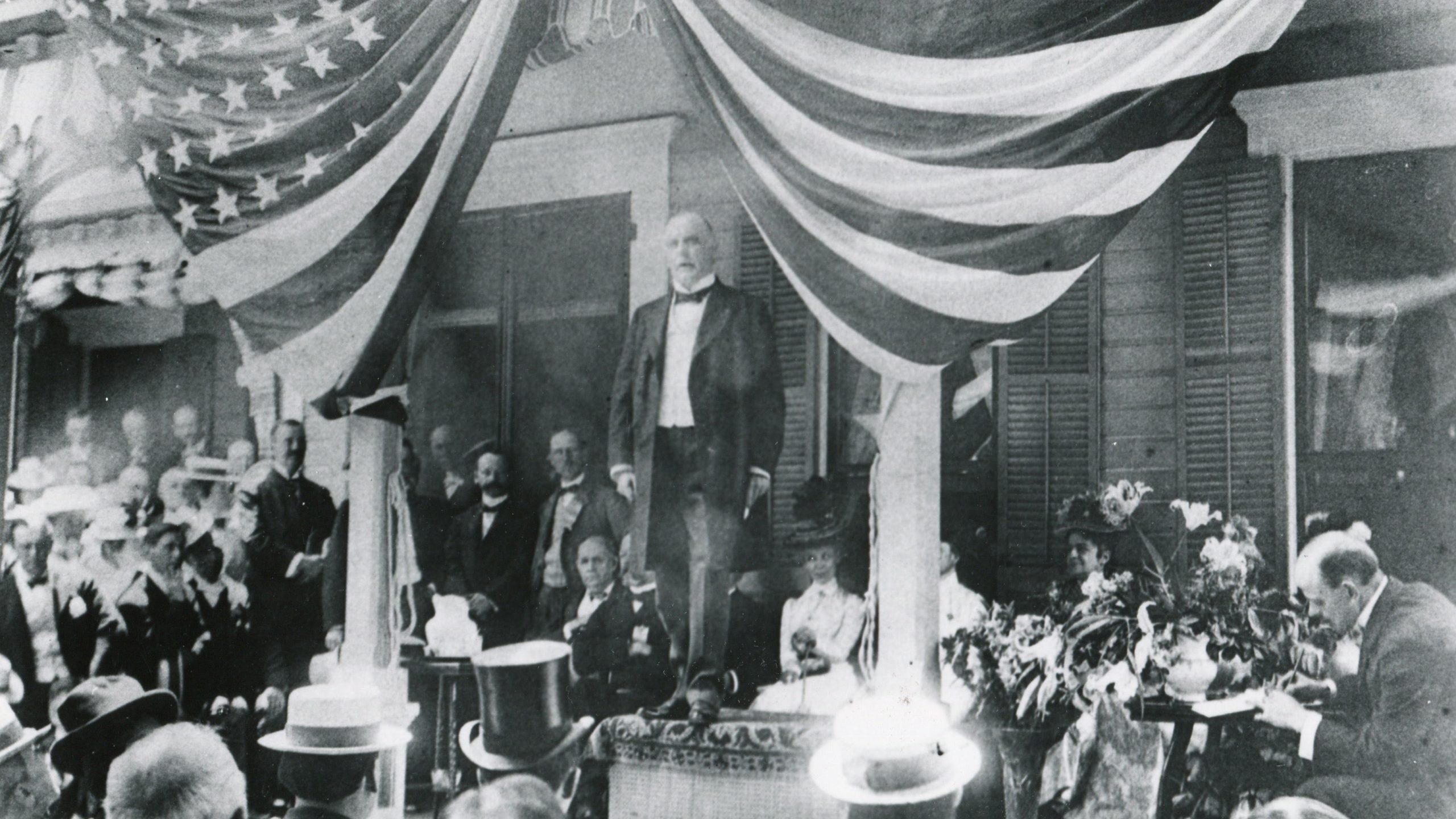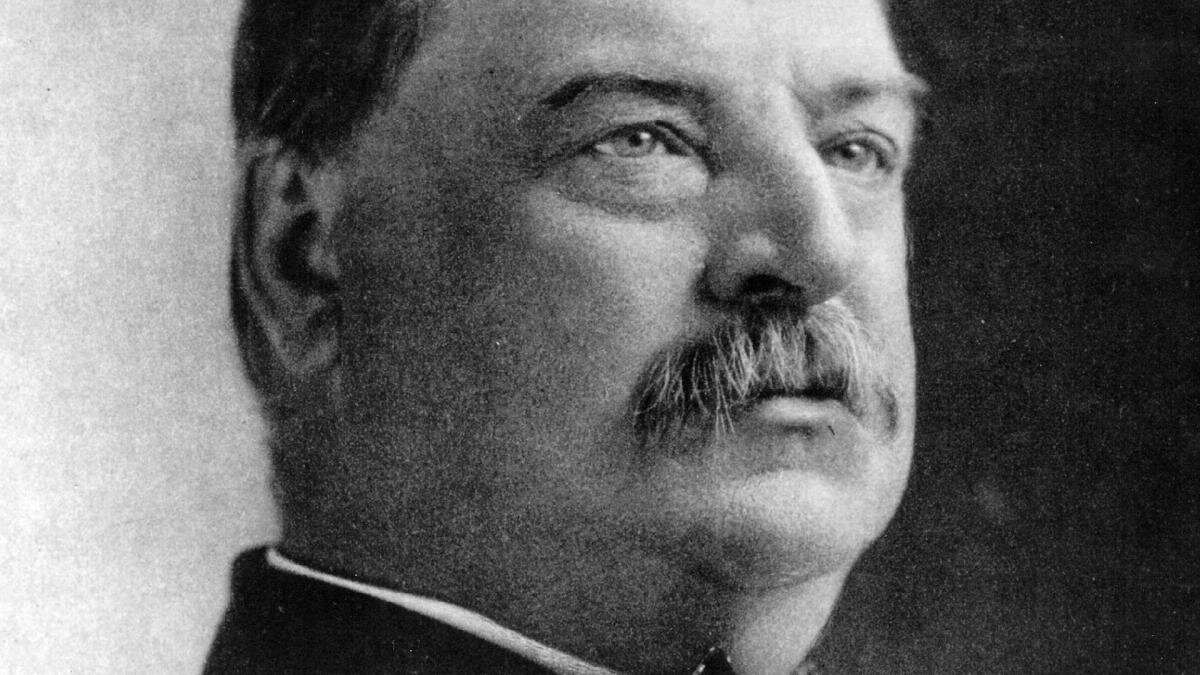mistressesanonymous.com – William McKinley, the 25th President of the United States, is often regarded as a president who was overshadowed by the more dynamic figures who followed him, particularly Theodore Roosevelt. Yet McKinley’s journey from a small town in Ohio to the White House was one of perseverance, strategic political maneuvering, and a deep commitment to his nation’s well-being. His rise to the presidency, though marked by personal tragedy, military service, and political skill, reflects a larger narrative about the American political landscape during the late 19th century and the forces that shaped the country’s transformation from an industrializing nation to a global power.
This article delves into McKinley’s early life, his path to political prominence, and his eventual ascent to the presidency, highlighting the key moments and decisions that made his rise from Ohio to the White House possible.
Early Life and Education: Foundations of a Future Leader
A Humble Beginning in Niles, Ohio
William McKinley was born on January 29, 1843, in Niles, Ohio, a small town in the Mahoning Valley, to William McKinley Sr. and Nancy Allison McKinley. His family, though not wealthy, was deeply rooted in hard work and devotion to duty. His father, a successful businessman, and his mother, a devout Methodist, instilled in McKinley a strong work ethic, a sense of moral responsibility, and an unwavering commitment to faith.
Growing up in Ohio during the early 19th century, McKinley was shaped by the ideals of the time—hard work, self-reliance, and the pursuit of education. He was an excellent student, though he did not excel in every subject. He attended public schools before enrolling at Allegheny College in Meadville, Pennsylvania, in 1860. However, his academic career at Allegheny was cut short by recurring health issues, particularly a bout with typhoid fever. Though he struggled in college, this period was formative for McKinley, as it helped cultivate his intellectual curiosity and determination.
A Young Man Ready for the Nation’s Call: The Civil War
As the United States plunged into the Civil War in 1861, McKinley felt the call of duty. At the age of 18, he enlisted in the Union Army and became a private in the 23rd Ohio Volunteer Infantry. McKinley’s military service would prove to be one of the most important formative experiences of his life. Over the course of the war, he displayed courage, leadership, and a strong sense of duty.
McKinley’s wartime experiences were characterized by several key battles, including the Battle of Antietam, one of the bloodiest of the Civil War. It was during the war that McKinley rose through the ranks, eventually being promoted to the rank of major due to his bravery and leadership qualities. He was not only a dedicated soldier but also gained a reputation for being level-headed in the face of adversity. The camaraderie and discipline of military service instilled in him the leadership skills and resolve that would serve him well throughout his political career.
After the war ended in 1865, McKinley returned to Ohio, where he would begin his transition from soldier to statesman.
Early Political Career: From Law to Public Service
The Path to Politics Begins
After returning home from the war, McKinley studied law and passed the bar exam in 1867, launching his career in legal practice. Although he was a successful attorney, McKinley’s true passion lay in politics. His early political career was shaped by the political climate of Ohio, which was a hotbed of debate over Reconstruction, the status of African Americans, and economic policy. McKinley’s political inclinations were heavily influenced by his loyalty to the Republican Party, which was the party of Abraham Lincoln and the Union during the Civil War.
McKinley’s entry into political life began in earnest in 1876, when he was elected to the U.S. House of Representatives to represent Ohio’s 17th district. He was only 34 years old at the time, but his early work in Congress began to establish his reputation as a rising star within the Republican Party.
A Strong Advocate for Protectionism
During his time in Congress, McKinley became known for his unwavering support of protective tariffs, which were designed to shield American industries from foreign competition. This position aligned him with the interests of American manufacturers, who feared that cheaper foreign goods would undermine their industries. McKinley’s commitment to protectionism was a defining feature of his early political career.
In 1890, McKinley played a key role in the passage of the McKinley Tariff Act, which significantly raised import duties on a wide range of goods. The tariff was designed to protect American industry, particularly in the growing manufacturing sector, and became a cornerstone of McKinley’s political platform. His advocacy for high tariffs earned him the admiration of business leaders and industrialists, and he quickly became a prominent figure in Republican circles.
The Governor of Ohio: A Rising Political Force
McKinley’s political success at the federal level eventually led to his election as the governor of Ohio in 1892. His first term as governor was marked by his focus on economic issues, labor concerns, and the protection of workers’ rights. Although McKinley was aligned with the Republican Party’s pro-business agenda, he understood that his political future depended on his ability to appeal to a broader range of voters, including those in the working class.
As governor, McKinley was committed to ensuring that Ohio’s industries were able to thrive, but he also worked to address the growing tensions between business owners and workers. This delicate balancing act earned him the respect of many constituents and made him a key figure in state and national politics.
McKinley’s tenure as governor was marked by his pragmatic approach to governance. He was able to work with both Democrats and Republicans to pass meaningful reforms that addressed issues such as labor conditions, education, and taxation. His success in Ohio gave him the experience and political capital he would need to pursue the highest office in the land.
The 1896 Presidential Election: McKinley’s Path to the White House
The Battle for the Republican Nomination
By 1896, McKinley had become a national figure within the Republican Party. The economic depression of the 1890s had left many Americans disillusioned, and the 1896 presidential election would become a battle for the soul of the nation. The Republican Party was deeply divided over issues like the gold standard and tariff policy, while the Democratic Party, under the leadership of William Jennings Bryan, was advocating for free silver and a populist platform aimed at aiding farmers and the working class.
McKinley’s position was clear: he was a staunch supporter of the gold standard and high tariffs. His platform, which emphasized economic stability and growth through protectionism, appealed to business interests, industrialists, and those who sought a return to prosperity after the economic downturn of the 1890s. McKinley’s message resonated with the growing urban middle class and with the Republican establishment, which saw him as the candidate who could unite the party and guide the nation through its economic troubles.
McKinley’s main challenge in securing the Republican nomination came from the insurgent candidacy of Ohio’s own Senator John Sherman, who was a leader of the party’s more conservative wing. However, McKinley’s steady political rise and his ability to appeal to both moderates and conservatives won him the nomination, despite the strong opposition from Sherman’s supporters.
The General Election Campaign: The Front Porch Strategy
The general election of 1896 was a fierce contest between McKinley and Bryan. Bryan, the Democratic candidate, campaigned vigorously for free silver, portraying McKinley’s gold standard position as an elitist stance that favored the rich and powerful. Bryan’s populist rhetoric and his call for greater financial equality resonated with farmers, laborers, and rural voters, who felt abandoned by industrialization.
In contrast, McKinley’s campaign was conducted from the relative safety of his home in Canton, Ohio, in what came to be known as the “front porch” campaign. Rather than traveling the country as Bryan did, McKinley stayed home and delivered speeches to delegations of voters who visited him. This strategy allowed McKinley to control the narrative of the campaign and remain above the fray of long, grueling speeches and rallies. His campaign was well-organized, supported by a powerful network of industrialists and businessmen who were eager to see a return to economic stability and protectionism.
McKinley won the election decisively, securing 271 electoral votes to Bryan’s 176. His victory signaled a return to conservative, pro-business policies and marked the beginning of a new political era for the United States.
The Presidency: McKinley’s Leadership and Legacy
The McKinley Administration
Upon taking office in 1897, McKinley faced significant challenges, including a still-struggling economy, labor unrest, and foreign policy questions that were beginning to loom large. McKinley’s economic policies focused on securing prosperity through the gold standard, high tariffs, and promoting business interests. One of his first major actions was the passage of the Dingley Tariff Act, which raised import duties and protected American industries.
McKinley’s presidency also witnessed the Spanish-American War of 1898, which was a defining moment in U.S. foreign policy. McKinley initially sought to avoid war but ultimately declared war on Spain after the explosion of the USS Maine in Havana Harbor. The war resulted in a decisive American victory and marked the U.S.’s emergence as a global power, acquiring territories like Puerto Rico, Guam, and the Philippines.
McKinley’s second term was tragically cut short when he was assassinated in 1901, but his presidency left a lasting impact on the United States, solidifying its position as a rising global power and ushering in the Progressive Era.
Conclusion: A President for the Ages
William McKinley’s rise from a modest beginning in Ohio to the White House is a testament to his perseverance, political acumen, and unwavering commitment to his country. His leadership during a critical time in American history helped guide the nation through economic challenges, an imperial war, and the growing pains of an industrializing society. Although often overshadowed by his successors, McKinley’s presidency set the stage for the 20th century and shaped the trajectory of American politics for generations to come.



